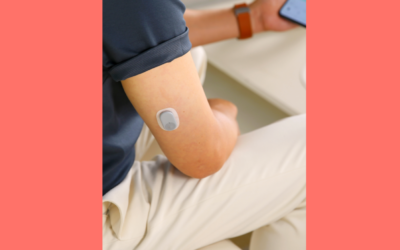By Lisa O'Keeffe on June 29, 2022
The latest Plan for Digital Health and Social Care has been published today (29 June), outlining the transformative programme of reforms to meet the growing need for preventative, personalised care.
Digital technology has huge potential to transform care delivery, and this new guidance sets out a clear vision for how that transformation can, and will be, achieved. Here, we summarise and share our reaction to some of the key initiatives revealed in the plan as we continue to work collaboratively with our partners in health and social care.
“We welcome today’s Plan for Digital Health and Social Care, which will unleash the transformative potential of this technology across the NHS, improve patient health outcomes, and give patients greater choice over when, how, and from where they access care.”
– Chris Barker, CEO at Spirit Health
Scaling of remote monitoring and virtual wards
One of the biggest focuses for the report is to support independent, healthy lives – giving people more control over their health and care needs. Previous published reports detail the ambition to have 40-50 virtual ward ‘beds’ per 100,000 of the population, and whilst today’s plan doesn’t add any additional detail to that ambition, there is clear direction from NHSE on the future of virtual wards. Frailty and respiratory remain the focus, as does facilitating earlier discharge, and we’re proud to already have projects underway to support our NHS partners in these areas.
Likewise, it is the building blocks detailed elsewhere in this plan that enhance our ability to deliver more connected, supported and personalised care at home. It is hoped that a further 500,000 people will be supported by digital remote monitoring by March 2023. The commitment to digital transformation as laid out in this plan ensures our work can continue, enabling more people with long-term conditions to live well and independently for longer.
“The delivery of virtual wards across England will enable more patients to benefit from quick, simple and continuous access to healthcare professionals, helping patients to feel better connected and better cared for, all from the comfort of their own homes.
“Our virtual ward pilot project in Leicester, Leicestershire and Rutland (LLR) supported 310 patients, and delivered an estimated saving of 1,103 bed days and £529,719 in net financial savings to date; and alongside these clinical results, we have also seen a noticeable improvement on patient wellbeing and independence.”
– Chris Barker, CEO at Spirit Health

Bridging the workforce gap
There’s no denying that for digital transformation to reach its full potential, there’s a need for the workforce to evolve. A long-term workforce plan is in the works from NHSE and HEE, but a short-term strategy aimed at bridging the digital skills gap will help to ensure change is needed now.
Whilst digital learning modules and on-the-job training are welcomed, it is the commitment to embedding digital skills into academia that ensures the workforce of tomorrow is ready to embrace digital technology.
At Spirit, we are proud to support this initiative by forging a partnership with a local university to provide first-hand digital experience. From next month, we will welcome physiotherapy students from University College Birmingham onto a placement within our hybrid virtual and traditional pulmonary rehabilitation programme. It’s a small, but crucial step, to ensuring the frontline workforce is not only embracing digital technology, but confident in using it too.
“This unique placement will allow students to develop skills and competencies in managing patients using a blended approach. Combining traditional face-to-face interventions with newer digital models of care within pulmonary rehabilitation will ensure the workforce of tomorrow is equipped with the skills they need to succeed.”
– Jude O’Kelly, Senior Clinical Lead at Spirit Health
Clearer guidance for industry
Changing processes, multiple frameworks and moving goalposts have all had an impact on the relationship between industry innovators and partners in the health and care system, with this plan agreeing that things need to change. It commits to simplifying procurement processes, removing duplication and providing clarity on which standards are musts – and how they will be enforced.
Collaboration between the NHS and tech providers is a force for good, ultimately supporting the NHS in delivering its core values. We welcome this new commitment to clarity and simplicity, hopefully making it easier than ever for us to share innovation, and take successful regional pilots through to national adoption.

Digital inclusion
Despite the focus on extending digital services across health and social care, it is clear that consideration has been made to mitigate the risk of exclusion. Whether access to digital is affected by socio-economic factors, or a citizen simply prefers face-to-face services, this plan confirms that traditional services must remain. This strengthens our view that digital health technology must always seek to enhance and support – not replace – face-to-face clinical services.
Joined-up health and care record
The plan identifies an expectation that by March 2025, ‘all clinical teams within an ICS will have appropriate access to a complete view of a person’s health record’. This follows significant investment in the adoption of electronic patient records across health and social care, but moves to combine what is currently disparate into a single, life-long record for each patient.
Crucially, the move will also enable non-clinical staff in social care settings to access information that is relevant to them, as well as allowing them to input data into the digital record in real-time.
This commitment paves the way for safer, more proactive care across the system – something we’ve already seen used effectively in a recent ICS deployment across Lincolnshire.
“A single, joined-up health and care record provides a really great opportunity to break down the barriers that currently exist between different data sources. It makes it easier for digital tools to be embedded within the care pathway, hugely benefitting not only patients, carers and clinicians, but facilitating innovation too.
“We’ve seen first-hand the benefits of this working in Lincolnshire, with a shared care record connecting data securely from multiple technology providers. That single repository made a huge difference to care delivery, so this is crucial as we move towards more integrated models of care.”
– Dr Noel O’Kelly, Clinical Director at Spirit Health

Summary
This long-awaited plan is a clear overview of the digital revolution we need in health and social care. Innovation and collaboration are at the heart of the plan, with industry playing a huge part in realising this vision. We look forward to the coming months and years ahead, and working to continue our mission of making health easy and delivering brilliant patient care.
“We cannot afford to be caught on the wrong side of history. And so we must make the most of huge advances in digital technologies that will deliver vast benefits for everyone involved in health and care.”
– Sajid Javid, Former Secretary of State for Health and Social Care


